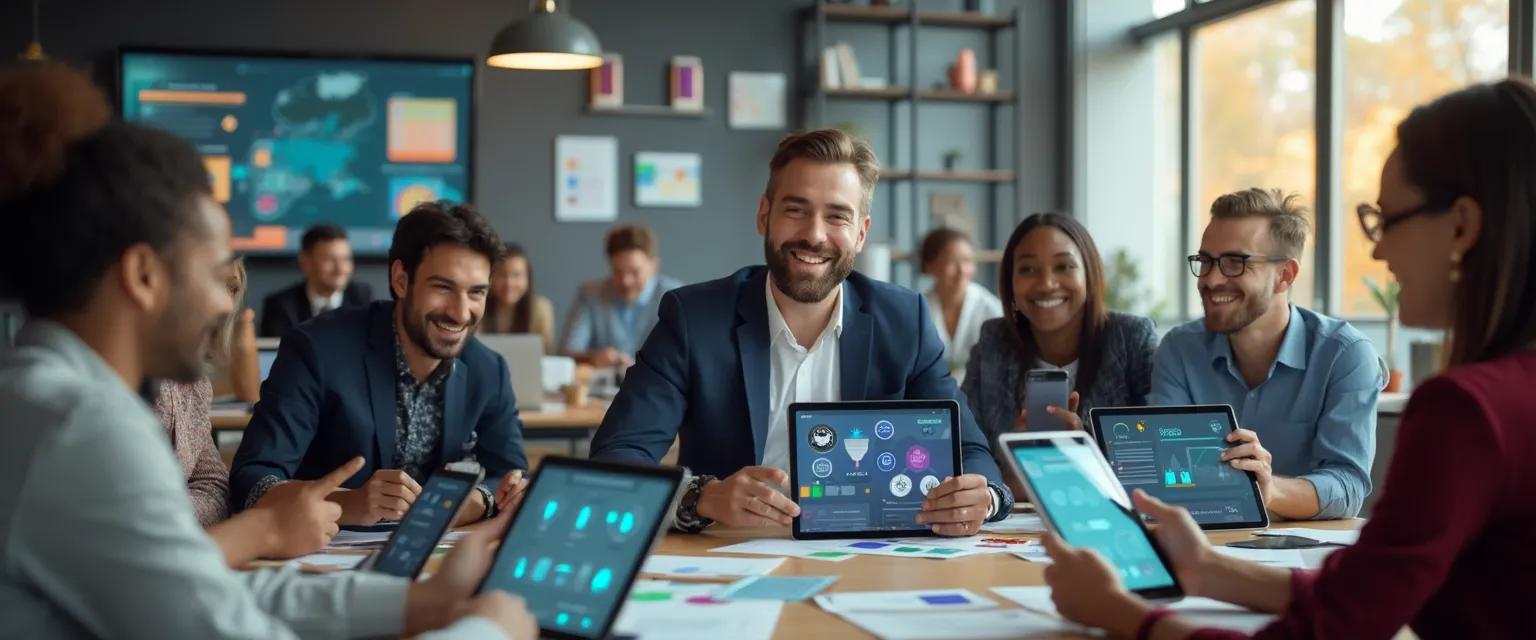Gamification in HR Apps: Turning Employee Development into Play
Transforming employee development from a mundane obligation into an engaging experience isn't just a nice-to-have anymore—it's becoming essential for forward-thinking organizations. Modern hr apps are leading this revolution by incorporating gamification elements that tap into our natural desire for achievement, recognition, and friendly competition. These innovative hr apps are changing how companies approach everything from onboarding to continuous learning, creating digital environments where professional growth feels less like work and more like play.
Research shows that organizations using gamified hr apps see up to 60% higher employee engagement compared to those using traditional methods. This dramatic shift comes from understanding fundamental human psychology—we're naturally drawn to progress, achievement, and social recognition. The best hr apps leverage these motivational triggers through carefully designed game mechanics that make professional development both enjoyable and effective.
HR professionals seeking effective hr apps techniques are discovering that gamification offers a powerful framework for driving participation in previously underutilized development programs. With flow state productivity techniques built into these platforms, employees find themselves naturally motivated to participate in learning activities they might otherwise avoid.
Key Gamification Techniques in Modern HR Apps
The most successful hr apps incorporate several core gamification elements that transform mundane tasks into engaging activities. Points, badges, and leaderboards form the foundation of most gamified systems, creating visible markers of progress and achievement that satisfy our need for recognition and status.
Progress bars and achievement tracking provide immediate visual feedback on skill development. This simple yet powerful hr apps feature taps into our completion bias—the psychological satisfaction we feel when finishing tasks. When employees can see they're 80% of the way to mastering a new skill, they're naturally motivated to continue.
Social recognition features amplify the impact of individual achievements by making them visible to peers. This hr apps strategy leverages our innate desire for social validation and creates positive peer pressure that encourages participation across teams.
Challenges and quests transform learning objectives into adventure-like journeys with clear goals and rewards. The best hr apps design these experiences with increasing difficulty levels that match employee skill development, creating the perfect balance between challenge and ability.
Personalized learning paths adapt to individual preferences and performance, ensuring that content remains relevant and appropriately challenging. This personalized approach to motivation keeps employees engaged by respecting their unique development needs rather than forcing everyone through identical experiences.
Psychological Benefits of Gamified HR Apps
Understanding the psychological mechanisms behind gamification helps explain why these hr apps strategies work so effectively. Every time an employee earns points, completes a challenge, or receives recognition, their brain releases dopamine—creating a natural reward cycle that reinforces continued participation.
Immediate feedback is another powerful psychological advantage of gamified hr apps. Traditional development programs often suffer from delayed feedback loops, where employees might wait weeks or months to understand how they're progressing. Gamified systems provide instant reinforcement, significantly accelerating the learning process.
The social aspects of gamified hr apps tap into our fundamental need for belonging and status. Seeing colleagues advance through challenges creates healthy competition while fostering community around shared development goals. This social proof becomes a powerful motivator for continued engagement with the platform.
Perhaps most importantly, well-designed hr apps guide employees into flow states—those optimal psychological conditions where we're fully immersed in an activity, experiencing high focus and enjoyment simultaneously. By balancing challenge with skill level, these platforms create the perfect conditions for maximum productivity and learning.
Real-World Success Stories: HR Apps That Win with Gamification
Companies implementing gamified hr apps report impressive results across various metrics. One multinational corporation saw completion rates for voluntary training programs jump from 20% to 83% after introducing gamification elements to their learning platform. Another organization reduced onboarding time by 40% while simultaneously increasing knowledge retention through quest-based learning modules.
The most effective hr apps implementations typically begin with clear objectives rather than simply adding game elements for their own sake. Successful organizations identify specific behaviors they want to encourage, then design game mechanics that naturally promote those actions. They also maintain freshness by regularly updating challenges and recognizing achievements through multiple channels.
Looking ahead, the future of hr apps will likely include even more sophisticated gamification elements, including augmented reality experiences, team-based challenges, and AI-driven personalization. Organizations that embrace these innovative hr apps techniques now will be well-positioned to attract and develop top talent in an increasingly competitive landscape.
By transforming employee development from obligation to opportunity, gamified hr apps are creating workplaces where continuous learning becomes a natural part of daily work life rather than an additional burden. For HR professionals looking to boost engagement and effectiveness, implementing gamification in their hr apps offers a proven strategy with measurable benefits.




